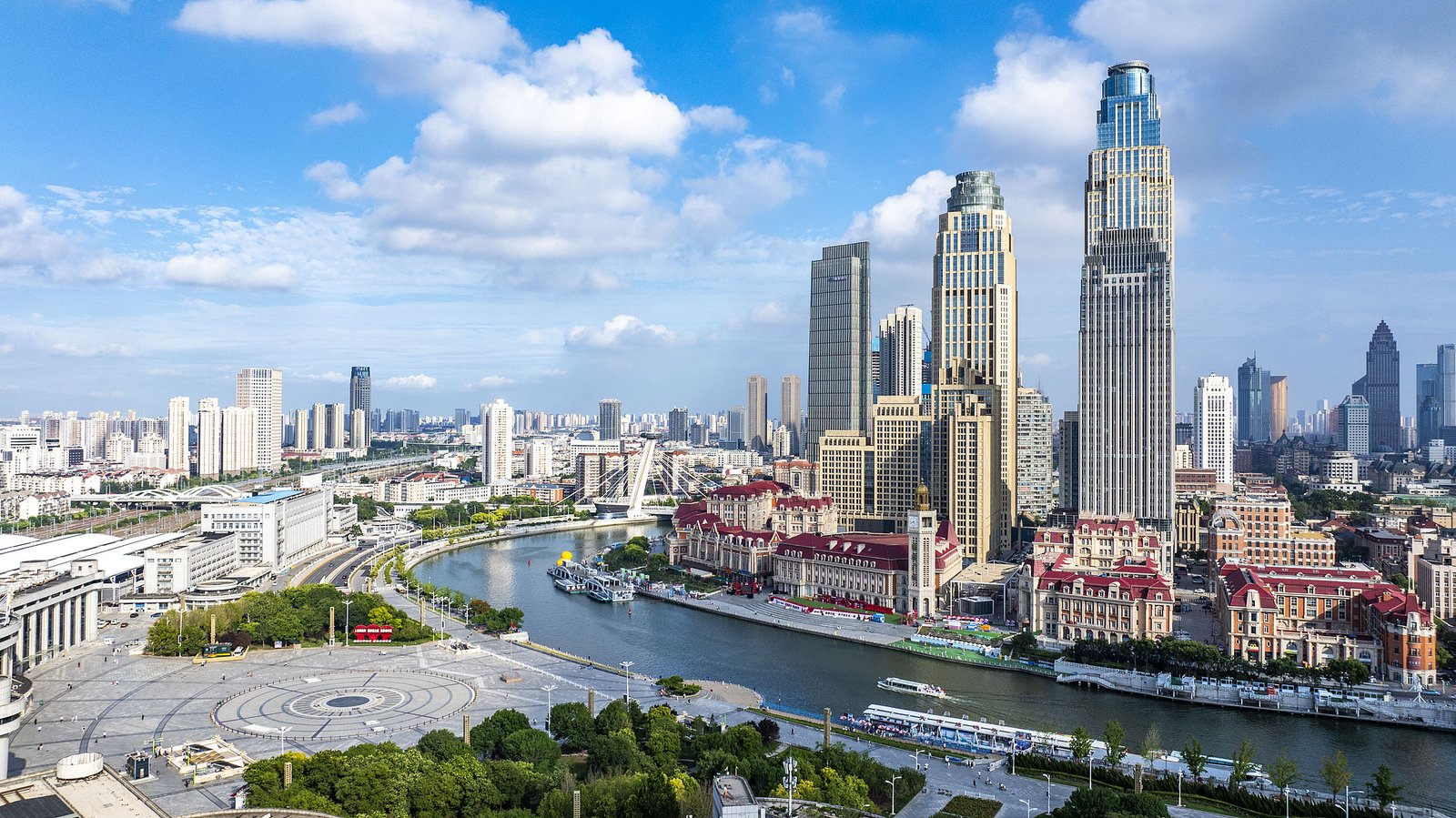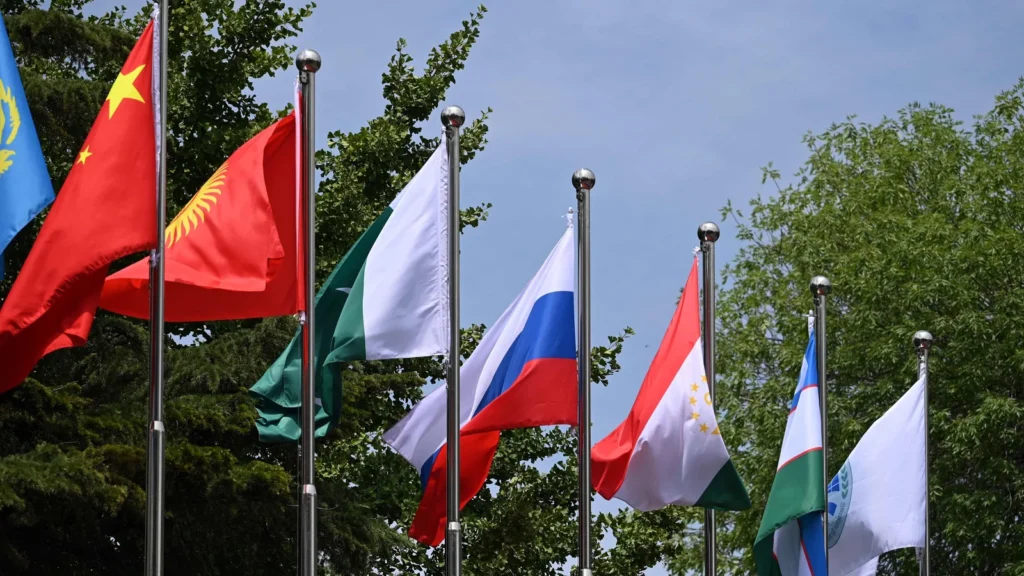Doha, 29 August 2025
25th meeting of the Council of Heads of State of the Shanghai Cooperation Organization (SCO) member states will be held on the banks of the Haihe River of Tinjian city from August 31 to September 1. People’s Republic of China took over the rotating chairmanship of the organization after the summit in Astana held in July 2024.
Tianjin is a place where rivers meet the sea, where Eastern and Western cultures blend harmoniously, and ancient traditions are intertwined with modern innovations. A rich history and a progressive vision make this metropolis an ideal platform for international cooperation and dialogue.
Chinese President Xi Jinping will deliver a keynote speech and chair the 25th SCO Heads of State Council meeting and SCO Plus session. In a recent media briefing, Liu Bin, the Assistant Minister of Foreign Affairs of the People's Republic of China, stated that within the framework of the summit, President Xi Jinping will also host participants at a welcome banquet and hold a series of bilateral talks. The meeting in Tianjin is set to be the largest in the history of the SCO. Over the past 24 years, since its founding, the organization has expanded from six to 10 member states, with two observer countries and 14 dialogue partners spanning Asia, Africa, and Europe. More than 20 foreign leaders, along with the heads of 10 international organizations, will gather for the summit in a city of 16 million people, located just 100 kilometers from Beijing.
Liu Bin further added, "President Xi Jinping, along with other leaders from the member countries, will sign the Tianjin Declaration, approve the SCO’s development strategy for the next decade, and release statements commemorating the 80th anniversary of the Victory in the World Anti-Fascist War and the founding of the United Nations. A series of documents will also be adopted to enhance cooperation in areas of security, economy, and humanitarian exchanges, charting the course for the future growth of the SCO.
Boris Titov, Chairman of the Russian-Chinese Committee of Friendship, Peace and Development, stated that this upcoming SCO summit will be the most significant in the organization’s history. While the SCO has grown since its founding, the changing global landscape and challenges in implementing UN sustainable development programs highlight the importance of this summit. Titov emphasized that the SCO is now a group united not just by shared views but by a common spirit, embodied in the “Shanghai spirit.” This year, declared the year of sustainable development by China, has seen over 100 related events, with the SCO countries working together on China’s priority initiatives.
Rustam Ganizoda, Deputy of the Majlis of People's Deputies of Dushanbe, Tajikistan, stated that amidst high geopolitical turbulence, the upcoming SCO summit in China will significantly contribute to regional and global peace, stability, and sustainable development. He emphasized that the SCO remains committed to forming a polycentric world order and enhancing global security cooperation. Ganizoda highlighted China's 2024-2025 chairmanship as crucial for deepening mutual trust and strengthening the organization’s influence, noting that the SCO now includes 26 countries, representing 44% of the world’s population.
Experts from SCO countries agree that the organization’s decisions impact not only regional, but global agendas. Andrey Kortunov, expert at the Valdai International Discussion Club, describes the SCO as a multilateral organization without a rigid hierarchy, where all members, old and new, have equal voting rights. He sees it as a prototype for a new international system with significant prospects. Shumkarbek Adilbek uluu, Deputy Director of the National Institute for Strategic Initiatives, notes that the SCO unites more than half of the world's population, influencing both regional and global diplomacy. He highlights the organization as a platform for integration, public administration, and cultural exchange. Bakhtiyor Ergashev, Director of Uzbekistan’s Ma'no Center, views the SCO as a key platform for coordinated actions to ensure stability and development in Greater Eurasia, especially during challenging global times, with the upcoming summit serving as an anchor of stability.
Xu Tao, Executive Director of the China SCO Research Center, highlighted the value of the SCO+ format in fostering multilateral cooperation without obligating all member states to participate in projects that don’t align with their interests. This format allows countries to collaborate on initiatives they are passionate about. For instance, the SCO+ framework has supported the establishment of the SCO Training and Practical Center for Agriculture in Shaanxi, China, and the SCO Big Data Computing Center in Xinjiang, both aimed at boosting technological development in Central Asia. Xu sees SCO+ as an effective means to advance the organization’s sustainable development.
Kazbek Maigeldinov, Chairman of the Kazakhstan Association of Chinese Researchers, views the SCO’s multilateral cooperation as an alternative to Western-dominated global institutions in a multipolar world. He emphasized that China’s chairmanship brings new momentum to the organization. Maigeldinov explained that the SCO, with its non-interference, mutual respect, and equality principles, offers a unique approach. He believes that the Chinese presidency aligns with Xi Jinping's vision of a shared future, where all member states have a voice in shaping decisions. This inclusive approach, he argues, will drive the continued expansion and success of the SCO.












